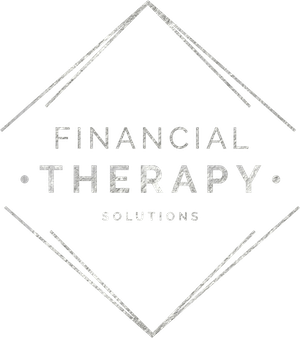Financial Trauma and Financial Therapy
A roundtable discussion with Joe Saul-Sehy of the Stacking Benjamins Show, Paula Pant of Afford Anything, Larry Sprung of Mitlin Money Mindset and Wendy Wright of Financial Therapy Solutions
by Wendy Wright, LMFT, Financial Therapist, Wealth Transfer Dynamics Specialist, Money Coach
Key Points
- A recent discussion about financial trauma by four financial experts
- How to identify signs of financial trauma in your money life
- How my signature Financial Therapy approach can help you begin healing
Intrusive thoughts, racing thoughts, chaotic thoughts, or rigid thoughts around your money decision making. Avoidant money behaviors, obsessive money behaviors, constantly in conflict about money. All of these experiences can be ways you have developed to cope with financial trauma. Consider these statistics: In a 2016 study, 23 percent of Americans (including 35 percent of Millennials) reported experiencing psychological effects similar to posttraumatic stress disorder (PTSD) due to “acute financial stress” (source). IYKYK, right?
Let’s dive in with a complicated question: What defines financial trauma?
Just last week, I attended FinCon 2024 and recorded an episode of the Stacking Benjamins Show podcast with host Joe Saul-Sehy, Paula Pant of Afford Anything, and Larry Sprung of Mitlin Money Mindset. To help identify what is traumatic, I offered the following framework: Trauma can be something that happens that your brain doesn’t expect or know how to absorb.
When it comes to financial trauma, it may mean a sudden loss of income by job loss, divorce, or other life shocks. It can be living with a verbally abusive parent or spouse who constantly berates you as “bad with money.” Joe mentioned this article as a conversation starter. A scarcity mindset, sometimes called scarcity trauma, is a chronic form of financial trauma. Thomas Faupl, LMFT, SEP, adds, “Scarcity trauma comes from a lack of financial resources.” The roundtable also used the Great Depression as an example. During this time, the nation experienced a common trauma of sudden and significant change to income and security.
So what happens to someone who experiences financial trauma?
During this roundtable, the group discussed how a response to a traumatic event is usually a blend of the impact of the event and the neurobiology, or the temperament, of the individual. If you believe you may have experienced financial trauma, I encourage you to notice if you shift into highly rigid or highly chaotic money behaviors.
For instance, if you tend toward hyper organization in a time of stress, you may notice that you start to rigidly save money. This reaction becomes a coping skill. You may feel highly uneasy – threatened, to some degree – if you need to take money out of your savings.
Or if you tend toward chaos, brain fog, and/or avoidance in a time of stress, this shows up in money behaviors and patterns. You may find yourself in a debt cycle, for example, racking up large amounts of debt with promises that “it will be the last time.” You may pay off the debt and vow to never go into debt again, only to break the promise and sink deeper into despair.
These are just a couple of examples of how financial trauma may manifest in money behaviors.
What can you do to start your healing journey? I’ve seen my 10 Principles of Financial Therapy© play a major role in helping to heal and shift my clients’ relationships with money. The first principle, Abundant Compassionate Curiosity and Zero Judgment©, can really change the game. This idea allows the space to see your money behaviors as ways you have learned to cope with a difficult situation, not as evidence you are inherently “flawed” with money. Hope can begin to show up for you, which makes a huge difference.
Another principle, A Plan is Only as Good as Its Adjustment Process©, is also discussed by the group. This principle gives space to acknowledge that flexibility is important in money planning and decision making. Larry endorsed this principle as one he uses with his planning clients. He shared ways that he has supported clients and podcast listeners to grieve what didn’t work and move toward the adjustment process with compassion.
To listen to the full episode, click here! Other key ideas discussed during our roundtable include:
- Diving into financial trauma
- Signs of financial trauma
- Personal stories about the scarcity mindset
- Individual and cultural financial trauma
- Judgment and financial secrecy
- Inherited wealth and emotional struggles
- Behavioral finance in financial planning
- Building compassionate financial relationships
- Recognizing financial trauma: hoarding
- Societal views on hoarding vs. Saving
- Personal stories of financial extremes
- Balancing financial planning and living in the present
- Diagnosing money hoarding and anxiety
- Steps to address financial anxiety
- Exploring false connections with money
- The importance of financial planning and adjustments
- Tracking spending and financial awareness
- Principles of financial therapy
- When to seek financial therapy
Ready to do your own healing from financial trauma?
Download the free Foundational Series of My Financial Therapy Journal and begin your recovery journey! Stay tuned for more journal prompts to deepen your financial therapy work.
As a reminder, these resources are not therapy or a replacement for therapy. They are meant to be educational and great to use in combination with therapy. To book a free discovery call with me, click here!






